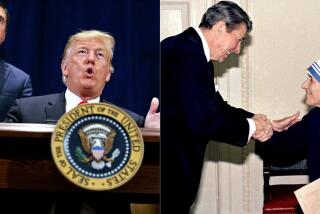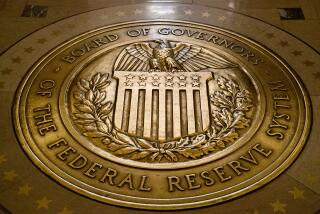A Fine Choice
- Share via
President Reagan has made an excellent decision in nominating Barber B. Conable Jr. as the next president of the World Bank.
Conable is not a banker, but neither was Robert S. McNamara, who built and developed the bank to its present effectiveness. Nor is Conable a specialist in international finance. The bank’s outstanding staff has experts enough in those areas.
But Conable has vision, a demonstrated ability to see economics in the largest dimension. And he has the respect of the American Congress, whichin the past, through prejudice or ignorance, has too often blocked adequate funding for the bank and its subsidiary, the International Development Assn., which makes concessional loans to the poorest of the poor nations.
The influence of Treasury Secretary James A. Baker III in the selection is also apparent. He has guided the education of the President in recent months to understand the importance of the bank after years of neglect and obstruction under the tenure of the previous secretary, Donald T. Regan. Baker has given the bank a major role in a new effort to resolve the Third World debt crisis, and his staff shows a willingness to support the full replenishment of IDA when it comes due in 1987.
Reagan was under pressure from the radical right to choose someone who shared its narrow and negative view of the bank. That would have been a setback to the whole effort of development assistance. Instead, the President has chosen someone who is an authentic conservative, not a reactionary claiming to be conservative. This assures the bank an open-minded leader, pragmatic in terms of the world economic situation, sensitive to the desperation that marks the lives of billions in Asia, Africa and Latin America.
In 20 years in Congress, Conable won the respect of his colleagues for his seriousness, for his judgment, for his integrity. Many of those years were devoted to leadership in the House Ways and Means Committee, an experience with particular relevance to the leadership of the bank. His new role can serve to encourage a more responsible American response to the problems of poverty in the world, and it can serve to assure a more vigorous application of the bank’s already proven skill in addressing those problems.
More to Read
Sign up for Essential California
The most important California stories and recommendations in your inbox every morning.
You may occasionally receive promotional content from the Los Angeles Times.













